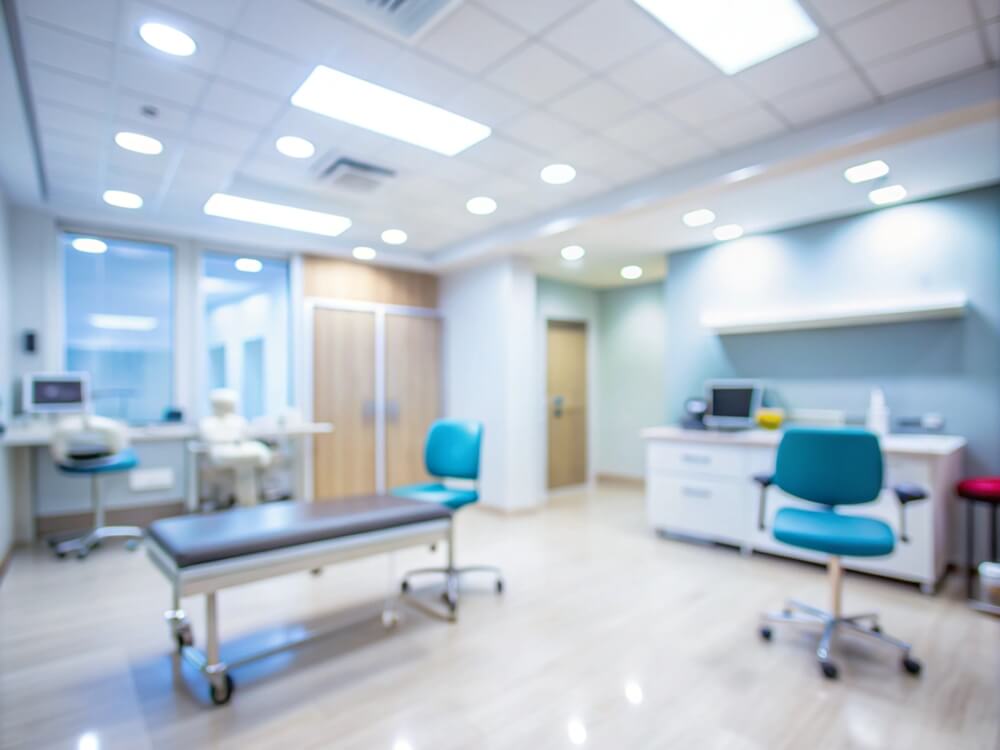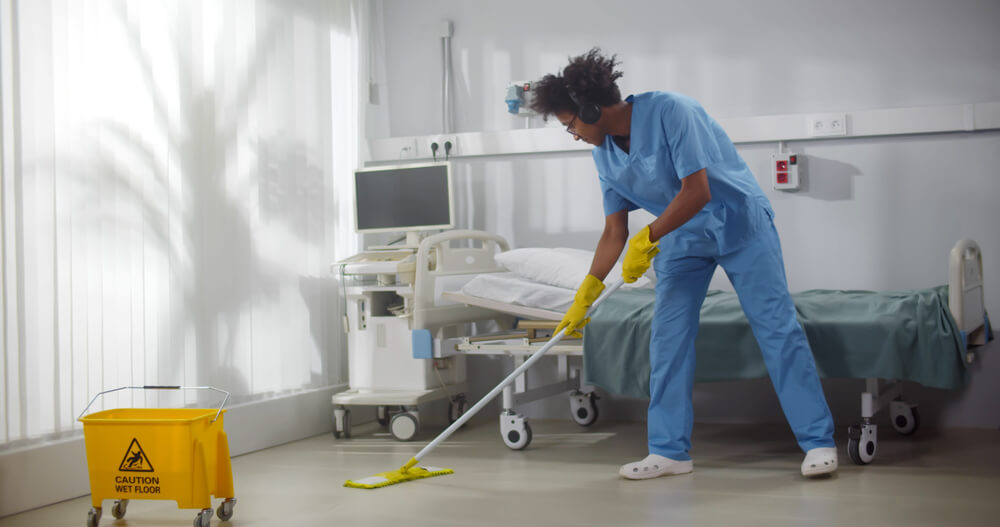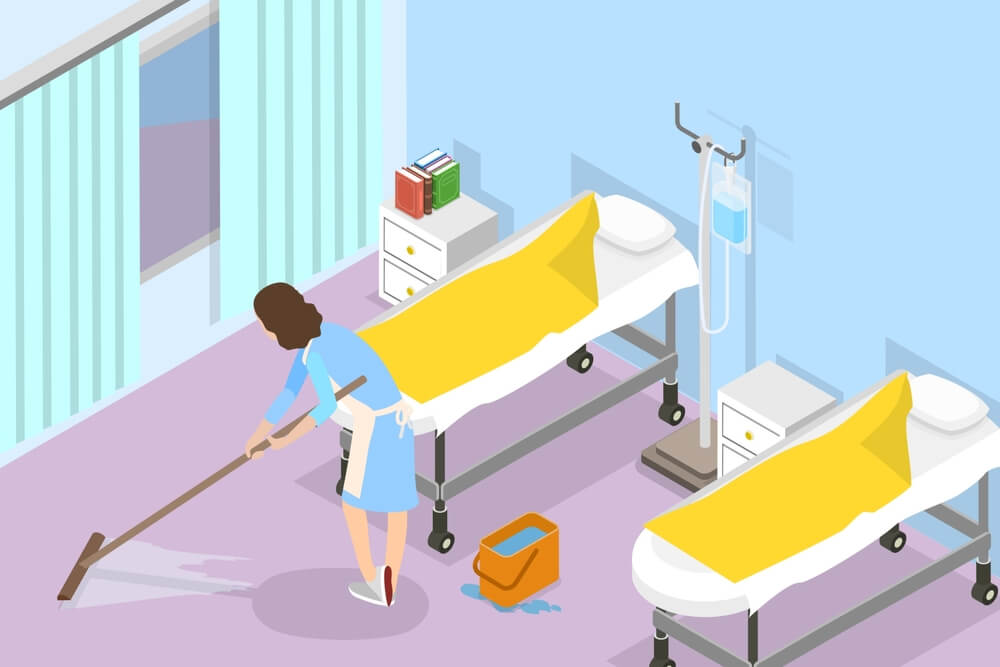Maintaining a clean and sanitary environment in medical offices and hospitals is non-negotiable. Unlike regular office spaces, these healthcare facilities require specialized cleaning services to ensure the highest levels of hygiene and safety.
When patients visit hospitals, they trust the healthcare providers to offer more than just medical care—they also expect a safe, clean, and sanitary space where their health is not compromised.
In this article, we’ll delve into why specialized cleaning services for medical offices and hospitals are essential.
We’ll explore the specific requirements, the importance of infection control, and how professional cleaning services play a crucial role in maintaining health standards.
Why Medical Facilities Need Specialized Cleaning
Hospitals and medical offices deal with a wide range of patients, including those who are immunocompromised, elderly, or suffering from infections.
This makes them a high-risk environment for the spread of bacteria, viruses, and other pathogens. Traditional cleaning methods simply don’t cut it in these situations. Specialized cleaning services focus on:
- Infection Control: Preventing cross-contamination between different areas.
- Compliance with Health Regulations: Meeting strict sanitation standards set by healthcare authorities.
- Ensuring Patient Safety: Minimizing the risk of healthcare-associated infections (HAIs).
These factors necessitate specialized cleaning services that are tailored to the unique challenges of healthcare environments.
Key Components of Healthcare Cleaning Services
Medical facilities require cleaning procedures that go beyond surface-level cleaning. The following components are essential in ensuring a thorough cleaning process:
1. Disinfection and Sanitization
One of the most critical aspects of cleaning medical offices and hospitals is disinfection. Healthcare settings host numerous bacteria and viruses that can survive on surfaces for long periods.
Specialized cleaning services use medical-grade disinfectants to kill pathogens and prevent infections. These disinfectants are EPA-registered and specifically chosen for their efficacy against common hospital pathogens like MRSA, C. difficile, and Norovirus.
2. HEPA Filtration for Air Quality
Maintaining good air quality is crucial in healthcare environments. Airborne particles such as dust, allergens, and pathogens can pose risks to patients and staff.
Specialized cleaning services use HEPA filtration vacuums that capture 99.97% of airborne particles, ensuring cleaner and safer air circulation.
3. Focus on High-Touch Areas
High-touch areas such as door handles, light switches, bed rails, and medical equipment are hotspots for germs. These areas require frequent and thorough cleaning and disinfection to reduce the chances of infection spread. A specialized cleaning team understands the importance of targeting these areas with precision.
4. Proper Waste Disposal
Medical waste, including sharps, bandages, and other contaminated materials, poses a unique challenge. Specialized cleaning services ensure that this waste is handled and disposed of properly, adhering to local and national healthcare waste disposal regulations.
This process reduces the risk of contamination and protects staff and patients alike.
5. Personal Protective Equipment (PPE)
The safety of cleaning staff is as important as the safety of medical personnel. Specialized cleaning services ensure that their cleaning crew is equipped with the necessary personal protective equipment (PPE), such as gloves, masks, and gowns.
This not only protects the cleaners but also prevents cross-contamination.
Infection Control in Medical Cleaning

One of the most critical objectives of specialized cleaning services in medical facilities is infection control. Healthcare-associated infections (HAIs) are a serious concern, affecting 1 in 31 hospital patients on any given day, according to the CDC. Proper cleaning protocols play a pivotal role in reducing the risk of HAIs.
1. Preventing Cross-Contamination
Cross-contamination occurs when pathogens are transferred from one surface to another. For example, cleaning staff could inadvertently spread germs by using the same mop or cloth in different rooms.
Specialized cleaning services use color-coded cleaning tools to prevent cross-contamination. Each color is designated for a specific area, such as red for restrooms and blue for patient rooms.
2. Terminal Cleaning in Surgical Rooms
Operating rooms (ORs) and other critical care areas require a higher level of cleaning, known as terminal cleaning. This involves a deep, top-to-bottom cleaning that includes disinfecting every surface in the room, from the ceiling to the floor, after each surgical procedure.
Terminal cleaning helps eliminate any lingering pathogens and ensures the room is sterile for the next patient.
3. Daily Cleaning and Disinfection
Daily cleaning and disinfection of high-traffic areas are essential to control the spread of infections. This includes regular cleaning of waiting rooms, reception areas, examination rooms, and restrooms.
Frequent disinfection reduces the number of pathogens in the environment and keeps patients and staff safe.
Importance of Hiring Professionals for Medical Cleaning
There’s no doubt that medical environments require a higher standard of cleanliness. However, achieving this level of cleanliness requires expertise and specialized knowledge, which is why hiring professional cleaning services is essential. Here’s why:
1. Expertise in Healthcare Cleaning Protocols
Professional cleaning companies that specialize in healthcare cleaning are well-versed in the specific protocols required for medical environments.
They follow guidelines set by organizations like the CDC and WHO, ensuring that their cleaning procedures meet the highest standards of hygiene and safety.
2. Use of Industry-Approved Cleaning Products
Not all cleaning products are safe for use in healthcare settings. Specialized cleaning services use EPA-approved disinfectants and cleaning agents that are both effective and safe for medical environments.
These products are chosen for their ability to eliminate bacteria, viruses, and other pathogens without posing risks to patients or staff.
3. Adherence to Compliance Standards
Medical facilities are subject to strict regulations, including those set by OSHA (Occupational Safety and Health Administration) and JCAHO (Joint Commission on Accreditation of Healthcare Organizations).
Professional cleaning services ensure that their processes are in full compliance with these standards, reducing the risk of violations or penalties.
4. Focus on Patient and Staff Safety
Above all, professional cleaning services prioritize the safety of patients and staff. They are trained to identify potential hazards, properly dispose of medical waste, and use cleaning techniques that minimize the risk of infection.
Types of Cleaning Services for Medical Offices and Hospitals

Different areas within medical offices and hospitals require different levels of cleaning. Here’s a breakdown of the various cleaning services typically offered:
1. General Cleaning for Public Areas
Public areas such as waiting rooms, hallways, and lobbies see high foot traffic and are the first areas patients and visitors encounter. These areas require regular cleaning, vacuuming, mopping, and dusting to maintain a welcoming and safe environment.
2. Clinical Cleaning for Examination Rooms
Examination rooms are where patients receive care, and these spaces need to be disinfected between each patient visit.
Clinical cleaning involves wiping down exam tables, disinfecting medical equipment, and ensuring that surfaces are free from pathogens.
3. Restroom Sanitation
Restrooms in medical facilities must be cleaned and disinfected multiple times a day to prevent the spread of germs. Specialized cleaning services focus on sanitizing toilets, sinks, countertops, and high-touch areas like door handles.
4. Deep Cleaning for Patient Rooms
Patient rooms, especially those used for long-term stays, require deep cleaning to eliminate any lingering germs or bacteria. This includes disinfecting surfaces, changing linens, and thoroughly cleaning the floors, windows, and bathrooms.
5. Environmental Cleaning in Surgical Areas
Surgical areas require the highest level of cleanliness. Environmental cleaning in these areas includes the use of sterile tools and techniques to disinfect all surfaces. Cleaning teams must follow strict protocols to ensure that the environment is free from contaminants before each procedure.
Eco-Friendly Cleaning Solutions for Healthcare
While maintaining hygiene is the top priority, many medical facilities are now considering eco-friendly cleaning solutions.
Green cleaning practices in healthcare reduce the use of harsh chemicals that may be harmful to both the environment and the facility’s occupants.
1. Non-Toxic Cleaning Agents
Many specialized cleaning services now offer non-toxic, biodegradable cleaning products that are just as effective as traditional chemical-based cleaners. These products are safe for use around vulnerable populations, such as patients with respiratory issues or allergies.
2. Reducing Environmental Impact
In addition to using eco-friendly products, specialized cleaning services also focus on reducing water usage and energy consumption during cleaning. This minimizes the environmental footprint of the facility while maintaining high standards of cleanliness.
The Role of Technology in Medical Cleaning
Technology is playing an increasingly important role in healthcare cleaning services. Advanced cleaning technologies improve efficiency and effectiveness in medical settings.
1. UV Light Disinfection
Some cleaning services are incorporating UV light disinfection, which uses ultraviolet light to kill bacteria and viruses. This technology is particularly useful in surgical areas, as it can disinfect surfaces that are difficult to reach with traditional cleaning methods.
2. Electrostatic Sprayers
Electrostatic sprayers are another innovative tool used in healthcare cleaning. These devices charge disinfectant particles, allowing them to adhere to surfaces more effectively. This results in a more even distribution of disinfectant, reducing the risk of missed areas.
Conclusion
The importance of specialized cleaning services in medical offices and hospitals cannot be overstated. From infection control to patient safety, professional cleaning plays a vital role in maintaining the health and well-being of everyone who enters a healthcare facility.
By hiring a specialized cleaning service, healthcare facilities can ensure that they meet the highest standards of hygiene, reduce the risk of infections, and create a safe environment for both patients and staff.
FAQs
1. Why is specialized cleaning necessary for hospitals?
Specialized cleaning is essential because hospitals and medical offices are high-risk environments where bacteria, viruses, and other pathogens can thrive. Specialized services focus on disinfection, infection control, and complying with healthcare regulations to prevent the spread of illness.
2. How often should medical offices be cleaned?
Medical offices should be cleaned daily, with high-touch areas disinfected multiple times throughout the day. Certain areas, such as examination rooms, should be disinfected between each patient visit.
3. What cleaning products are safe for use in healthcare settings?
EPA-approved disinfectants are safe for healthcare use. Many facilities now opt for eco-friendly, non-toxic cleaning agents that are effective against pathogens without being harmful to patients or staff.
4. How does professional cleaning help prevent hospital-acquired infections?
Professional cleaning services follow strict protocols to disinfect surfaces, reduce cross-contamination, and remove pathogens, significantly reducing the risk of hospital-acquired infections (HAIs).
5. Can healthcare facilities use green cleaning products?
Yes, many healthcare facilities are adopting green cleaning products to reduce environmental impact. These non-toxic products are safe for medical environments and effective in maintaining hygiene.

